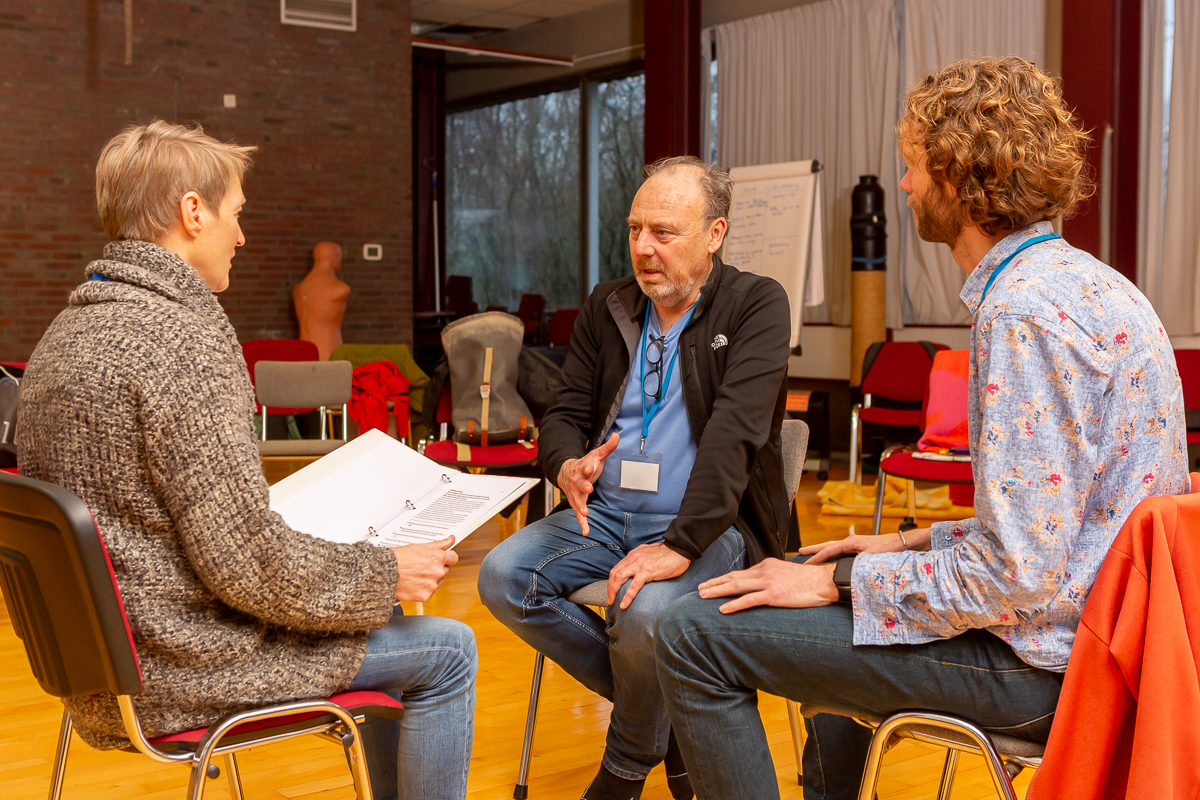Who is Systems-Centered Training for?
Systems-Centered Training (SCT) is of interest to anyone curious about learning and development from systems-centered theory and methods. Often these are coaches, trainers, consultants, executives, project managers as well as therapists, psychologists, psychiatrists, doctors, social workers and teachers. SCT is applicable in both work and private settings.
What can practicing SCT give you?
The more you become proficient in SCT, the more proficient you become in putting on the systems glasses. Through these glasses you see the development of a person, relationship, group, team, organization. You look more and more often at the whole rather than the individuals. You discover which phase of development the system is in and what will help you in this phase. At the same time, you learn a lot about yourself, because what happens in the group also happens to yourself and vice versa.
Examples of applicability of SCT
- A leader who guides the team in distinguishing and utilizing each other's qualities, improving work atmosphere results.
- A trainer who teaches skills to make a group work better together.
- A coach uses the here-and-now information for the development of the coaching system and thus of the client as well
- Partners in a love relationship -who previously regularly get bogged down in a war of words- learn to integrate their differences, thus experiencing more connection.
Participants speaking
"I see SCT as a great support for my marriage. When we get into an argument, we turn to subgroups. At first I feel resistance, but I get over that. The result: within 15 minutes the quarrel has completely evaporated and love flows again between us, without one of us feeling that we have lost out."
- Olaf van Kooten, former Wageningen University & Research professor
"Since knowing SCT, I often check with myself and my clients to see if there is any curiosity left. Usually a light goes on right away. In my conversations with couples and small management teams, I use 'functional subgroups' a lot. Tuning into the other person first and really connecting makes a big difference to what you are going to say next. I personally experience SCT as a deep recognition to our humanity, I feel more settled and solid since practicing SCT."
- Christianne Baggen, psychologist, therapist, team coach, awareness trainer
"We coach a management team that wants to lead the organization as one team. At the first meeting, we work on the listening climate using the 'Functional Subgroups' method. This quickly evokes reactions. The team breathes a sigh of relief when we indicate that you don't always communicates via connect and that it is especially helpful when there is a firm difference of opinion. Two weeks later, the manager tells me that comments are made in the meetings about talking through each other and listening to each other again. The team is on the move.
- Janneke Maas, organizational and team coach
"With the systems glasses on, you're not talking about what someone is like as a person, you're talking about the role someone plays. That facilitates the conversation. Then when I look at how I take on my role and how employees take on their roles, we avoid getting bogged down in personal interpretations, assumptions and judgments. It takes the emotional sting out of it."
- Hans Hofman, managing director
"Over time, many 'forbidden' feelings such as hate and desire have been integrated into me, freeing up my life energy. As a result, I live less from my head and am more present. I also now recognize my automatic tendency to rescue, so I am better able to focus my attention on the role I have at that moment and become more effective in my work. Privately, too, it allows for more relaxation and companionship with friends, family and partner."
- Suresh Rutten, interim manager, consultant and coach
